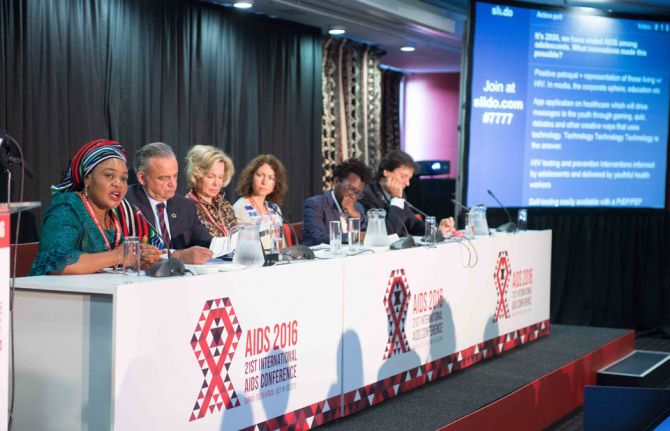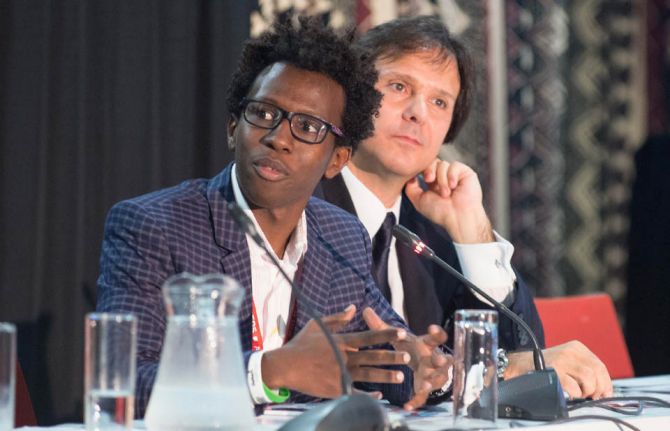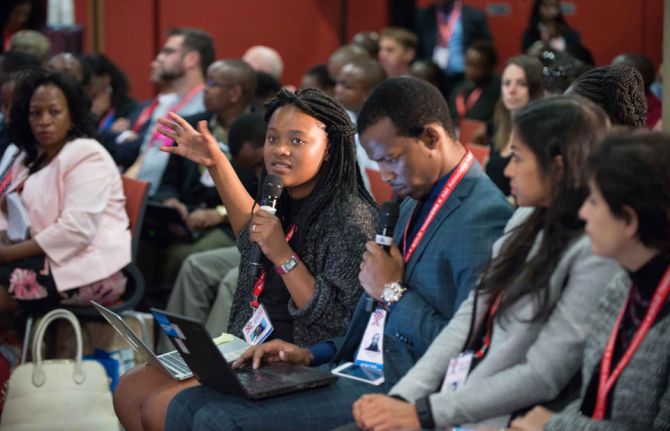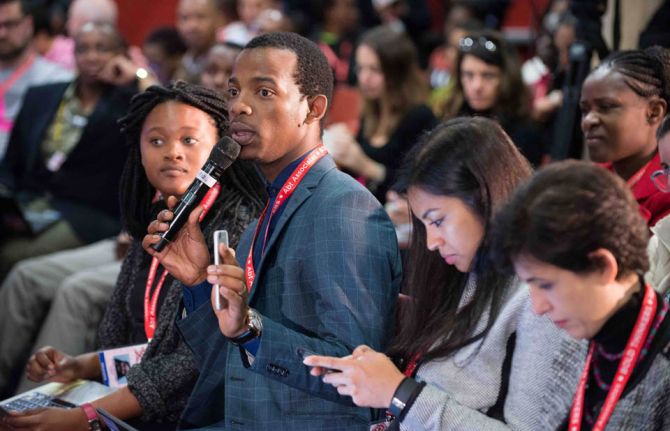




Update
Creating an AIDS-free generation with and for adolescents
18 July 2016
18 July 2016 18 July 2016Innovation has played a key role in advancing the response to AIDS, and continued investments in innovative solutions will be vital to ending AIDS among adolescents by 2030. An event hosted by the South African Ministry of Health and the United Nations Children’s Fund at the 21st International AIDS Conference, taking place in Durban, South Africa, from 18 to 22 July, brought together representatives of the media, donors, governments and youth.
Participants at the event, held on 18 July and entitled “Creating an AIDS-free generation with and for adolescents: predict the future by creating it,” noted that there is a great potential for paradigm shifts and improved outcomes for adolescents. The development of new rapid diagnostic testing and antiretroviral therapies has already changed the landscape.
Youth vlogger Siyanda Mohutsiwa and disc jockey Zakes Bantwini opened the session, which was moderated by award-winning journalist Iman Rappetti, and shared their experiences of working with young people affected by HIV across Africa. While interacting with the audience and engaging with young people around the world through social media, the participants explored five areas of innovation that they believe will contribute to the promise of an AIDS-free generation: mobile money services and digital currencies; unique identifications; transportation and delivery; wearable and sensor technologies; and learning technologies.
At the conclusion, all agreed that innovation is key, as is capitalizing on advances in technology, being prepared to think and do differently, investing in bold initiatives and fostering partnerships with new sectors, especially young people.
Quotes
“Adolescents were absent from the Millennium Development Goals— that's why we failed to address them.”
“We speak about prevention of mother-to-child transmission of HIV, but not about how to stay negative. We seek solutions for a vaccine, but not protecting girls against violence. We have identified the issues, we have found the problems, now we have to find the solutions.”
“Technology provides a platform for young people to share their experiences and feelings. Digital platforms are one way of allowing young people to engage without being judged and to be anonymous.”



